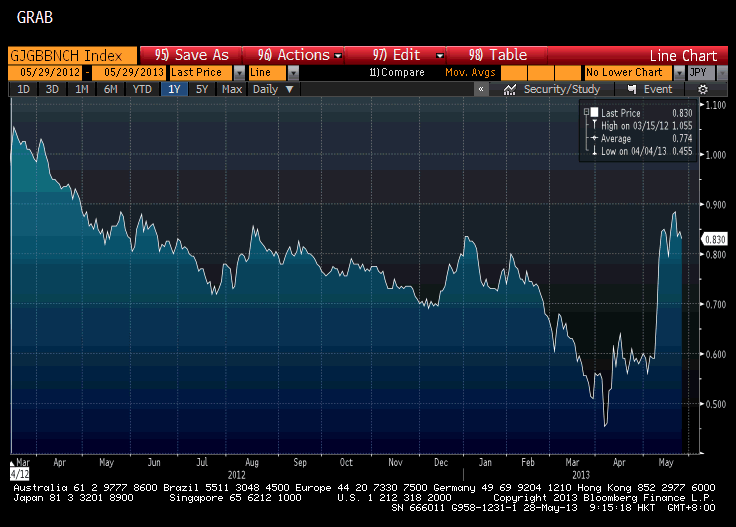Japan QE. Rationalized Equilibria. Lucas Critique.
The policies that Japan has embraced in an effort to revive its flagging economy are indeed desperate measures. To be clear, I believe that they will work in at least boosting asset prices and reviving the economy for a period of time. The long run prognosis is not so good.
Abenomics is like a swimmer trapped under water who must get to air quickly enough before he passes out. Unfortunately, to do that, he has to swim faster and burn more oxygen thus quickening his drowning. His fate rests on reaching the surface before his lungs give out.
Much of Japan’s fortunes and ills have come from its demographics. Given its current aging and shrinking population, economic growth will be hard to sustain and government budgets will be difficult if not impossible to finance.
The current spurt of asset purchasing by the BoJ coupled with fiscal expansion will only hasten the process of cash flow insolvency. The BoJ’s policy has already become hostage to game theoretic paradox, a curious manifestation of the Lucas Critique. If successful, the BOJ’s 2% inflation goal must make JGBs less attractive and so investors must shed JGBs wholesale. To be successful, therefore, the BOJ must become the sole bidder of JGBs, accelerating a demographical eventuality.
This is a vast acceleration of a dynamic that I had described in my last comment about Japan and it has surprised me. Be that as it may, I expect the BOJ to be able to control the term structure at least for the near future, and thus for the equity market rally to continue at least for about a year as animal spirits are revived. We can already see some optimism among domestic investors and corporates which is a very good sign in an economy which has this far been skeptical about all previous efforts to resuscitate the economy.
The longer term prospects are poor as savings dwindles with the population. Japan needs to reach oxygen before its lungs burst.
